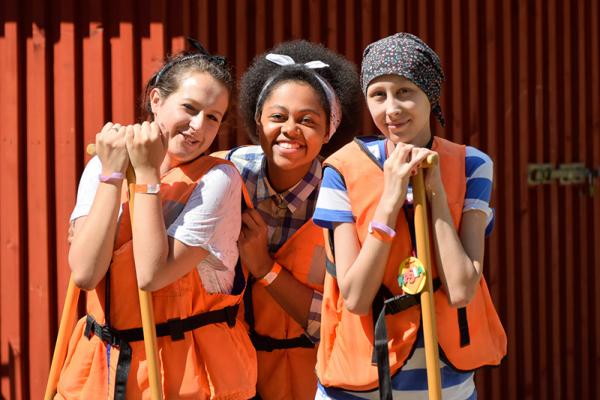
Newman’s idea, brilliant in its simplicity, was to create a place where seriously ill children can spend their time enjoying the simple joys of childhood. A place where children could stop looking at themselves through the prism of illness, and where they could regain their inner strength, self-confidence and self-esteem. All this achieved thanks to interesting activities, adventures, friendly environment and laughter, otherwise known as therapeutic recreation.
It all started with... Paul Newman, and the premature death of his son Scott in 1978. Scott was the first and only son of the American actor, film producer, racing driver, entrepreneur and philanthropist. Apart from Scott, Newman also had five daughters from his two marriages. The children lived in the shadow of their father’s fame, which generated a ruthless interest and obsessive inquisitiveness from his fans. Having a global superstar for a parent had a considerable impact on the life of all six children; however, it had particularly tragic consequences for Scott. Living in the shadow of his father, he was unable to find his place in life. Addicted to alcohol and drugs, he died at the young age of only 28 as a result of a drug overdose. The death of his son, whom the actor had been trying to save for years, shocked him to the core. He felt responsible for what had happened, and this is how his philanthropic activity began. Wanting to ensure that something valuable remained in connection with the life of his son, Paul Newman set up the Scott Newman Centre, a non-profit organisation dedicated to the prevention of substance abuse and domestic violence. The organisation operated until 2013. The involvement of the actor and his wife, Joanne Woodward, encouraged Hollywood celebrities to become involved in raising funds for this objective. Newman didn’t stop there. In 1982, he created a brand of food products, and the income from their sale after tax was donated in full to charity work. One of the star’s most famous initiatives is the Hall in The Wall Gang Camp – a summer camp serving children coping with serious diseases. It was established in 1988 in Connecticut. It was the beginning of the SeriousFun Children's Network, a network of summer camps and initiatives for children with various chronic diseases that has gone beyond the borders of the United States and continues to grow even after the death of its founder in 2008.
Newman’s idea, brilliant in its simplicity, was to create a place where seriously ill children can spend their time enjoying the simple joys of childhood. A place where children could stop looking at themselves through the prism of illness, and where they could regain their inner strength, self-confidence and self-esteem. All this achieved thanks to interesting activities, adventures, friendly environment and laughter, otherwise known as therapeutic recreation.
The idea caught on and spread rapidly, and other centres and programmes began operating in other states of the USA, in Europe and Israel, as well as in Africa, Asia and the Caribbean. Since the founding of the SeriousFun Children’s Network, more than 730,000 children from more than 40 countries have benefited from the camps and aid programs at no cost. Since 2008, children from Poland have also been taking advantage of this initiative. This is possible thanks to Péter Küllői – a Hungarian entrepreneur and philanthropist.
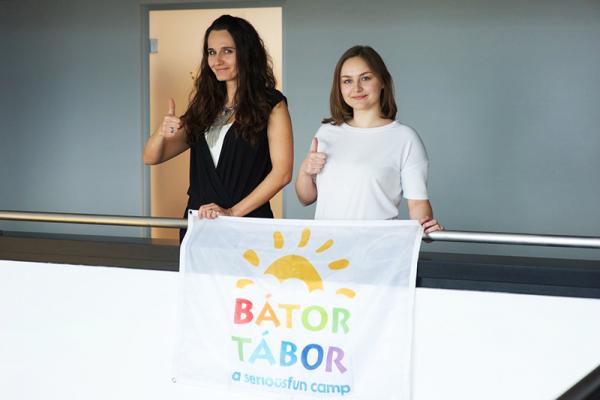
Zuzanna Szafran - Prezes Fundacji Bator Tabor Polska oraz Anna Barylska - Koordynator Projektu
Péter Küllői visited the Barretstown camp in Ireland, which is part of the SeriousFun Children's Network, and was inspired by this form of assistance provided to seriously ill children. Together with a group of colleagues, he decided to launch a similar project in Hungary, and in 2001 the Bátor Tábor camp for children with cancer was established. Since 2005, the Hungarian Bátor Tábor Foundation has run its own headquarters in the town of Hatvan, and has been gradually expanding its network of camps. The foundation provides assistance also to children with other serious diseases, not only cancer. In 2006, Paul Newman himself visited the Hungarian camp, and in 2007 Bátor Tábor became an official member of the SeriousFun Children’s Network. This is the only camp located in Eastern Europe which belongs to this network. It soon became apparent that the capacity of the Hatvan centre is sufficient to invite children not only from Hungary, but also from other countries of the Visegrád Group. Therefore, in 2011 the Polish Bátor Tábor Foundation was set up, as a branch of the Hungarian organisation, followed by other branches in the Czech Republic and Slovakia. At this point, it should be mentioned that the originator and founder of the network of holiday camps for seriously ill children – Paul Newman – had family ties with both Hungary and Poland. His grandfather on his father’s side came from Hungary, and his grandmother from Poland.
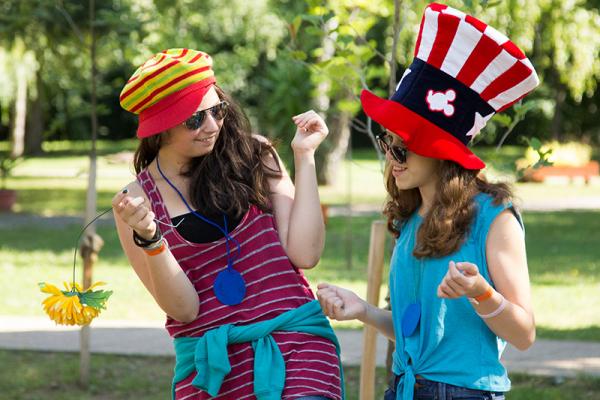
The Polish Foundation cooperates with nine oncological centres in Poland, where the coordinating doctors, with insight into individual case histories and awareness of the situation of the child and its family, identify convalescing children who could benefit from a stay at the camp. They collaborate with the foundation on a voluntary basis and are recruited in accordance with the guidelines developed by Yale University for the SeriousFun Children’s Network. The camp for Polish children takes place once a year, in August and lasts one week. As many as seventy children from across Poland, aged between 7 and 18 years old, take part in this adventure. They are accompanied by an even more numerous group of volunteers.
This is how Zuzanna Szafran, President of the Board of the Polish branch of the Foundation, describes the logistics of the entire project: “Volunteers, so-called Chaperons, collect the children from their parents and travel with them to Hatvan, located approximately 60 kilometres from Budapest. The journey takes place first by plane, then by bus. On arrival, the children are placed under the care of volunteers referred to as Cimbors. There is at least one volunteer per child in order to provide them with the best possible care. Great emphasis is placed on preparing the volunteers to work with children to the best of our ability. A professional medical team also watches over our charges the entire time. The camp was designed and built in such a way as to ensure the participation of children with various diseases in every activity. We have archery, kayaking, horse riding, art classes, a rope course, and a climbing wall. There are plenty of activities to choose from so that everyone can find something for themselves.”
Bátor Tábor stands for the Camp of Courage. The name is not accidental: “It all begins with a serious illness and an overwhelming fear of dying and feeling ill. Children have to live with this fear for a very long time – months, sometimes years. This fear is also a constant companion of these children’s families. Once they overcome their illness, it is very important for them to get back to their normal lives as soon as possible, and this is not easy. Bátor Tábor is not a conventional recreational or holiday camp. It is a therapeutic camp, where we try to create opportunities for children to improve their well-being and self-esteem, which is often reduced dramatically as a result of their illness.” – explains Zuzanna Szafran – “The children are motivated to undertake new challenges and must therefore show great courage during their stay at the camp. These challenges are not only physical. They have to reach out to other people, cooperate with each other. Moreover, it is often the first time they travel abroad, and the first time in their life when they fly by plane. This takes courage, all the more so because they travel on their own. The parents, who as a result of their children’s illness often became overprotective, must also show some courage. The seven days of being apart, without contact with their children, resembles the cutting of the cord. The parents receive a text message from us with information that their child has arrived, in the middle of the week they receive a second message with information about the child and the last day a third one, which confirms the child’s departure and pick up time. One of our principles is that we take full responsibility and ensure the children’s safety, but when children come into our care, they leave their mobile phones with us. When they are unable to escape into the virtual world, which they often get used to in hospital reality, it turns out that they can focus on what is here and now and make new friends. At the camp, they are confronted with living human beings, new challenges and tasks which are entirely different to what they experienced in the past. This is why both the children and parents show great courage here. This is what gave our camp its name.”
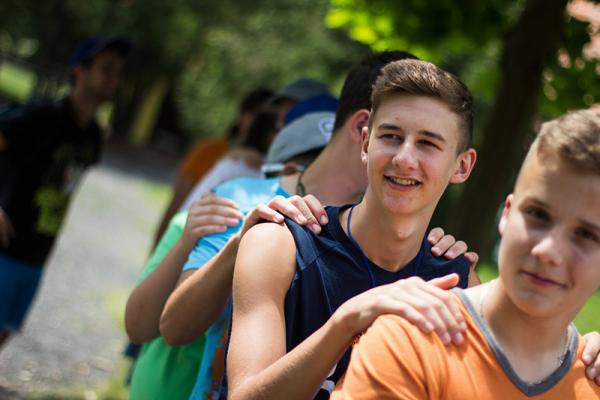
The children themselves, when completing a questionnaire at the end of the camp, mention just how important this lesson of courage is to them: “I am most proud of the fact that I was able to fit into a new group and that I was not afraid of making new friends”, “I am most proud of the fact that I have managed to overcome my own limitations (about the climbing wall)”, “At the camp, I learned that you should never give up”, “I am most proud of the fact that I overcome the fear of people”, “At the camp, I learned that I am not alone with such difficult experiences, there are a lot of people with problems exactly like mine or similar”, “Bator Tabor is like another world, where everything is possible.”
Zuzanna Szafran, who also participates in the summer camps as a volunteer, recalls the story of one teenage girl: “She had a terrible fear of heights, and when she got to the height of 4 metres in the rope park, she became completely paralysed and started crying. She was taken down, but after 20 minutes of looking at people from her group who were still climbing, she decided to give it another try. She started climbing with tears in her eyes, but completed the entire route in the rope park, and then climbed onto the climbing wall, and at the end, while secured in a harness, she started swinging on our giant, 11-metre-high swing, while screaming her heart out. This was a liberating scream of joy. When she came back, she was very emotional. She opened up, started telling us her difficult life story, and it was hard not to cry.”
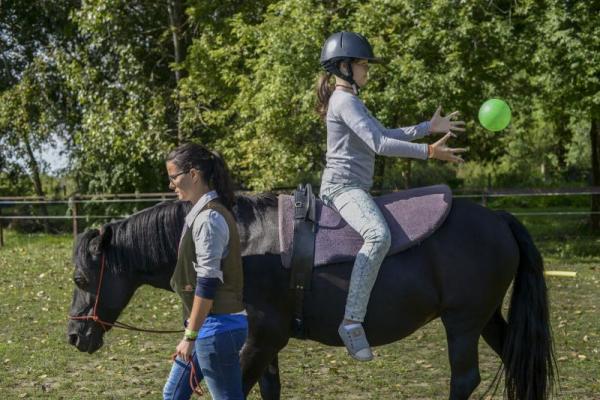
In Hungary, Bátor Tábor is one of the three most recognisable organisations and raising funds to organise camps is much easier there than it is in Poland, where hardly anyone has heard of the Camp of Courage. The Warsaw office, where two people are employed, mostly deals with fundraising. The organisation obtains funds from institutional and private sponsors, from modern art auctions and the charitable community of Bátor Tábor Runners. The foundation does not resort to state aid or EU funding, as a matter of principle. Zuzanna Szafran emphasizes that transparency of activities and sensible management of funds is of key importance, from which 68 to 72% is allocated for statutory purposes, and the rest is spent on foundation management, marketing and fundraising. Currently, Bátor Tábor Poland covers 88% of the costs of camps organised for Polish children. Zuzanna Szafran dreams of obtaining such a sum to cover not only the camps intended for children, but also to organise a camp for families which have lost a child as a result of an illness.
Bátor Tábor would not exist if it wasn’t for the numerous group of volunteers, who are tasked with organising the camps. Volunteers have different roles: The Chaperons accompany the children during their journey to and from the camp, while the Cimbors stay with them at the camp. As the workshops are conducted by a Hungarian camp crew in English, there are also volunteer interpreters present. The volunteers at the Bátor Tábor Foundation represent various professions – they include nurses, bankers, students, doctors, lawyers – people who want to give something of themselves to others. Istvan Tanczos, a Hungarian who has been living in Poland for 27 years, seven years ago read on the Warsaw Hungarians group on Facebook that the Foundation is looking for volunteers and has been helping at the camp every year since then: “I became involved by accident. This is voluntary work and, of course, during that time I could be working and earning money, and I am also leaving my family behind, but I feel like I should contribute. People ask me if I feel like going to see children suffering from such serious diseases. At the camp, they are in convalescence. Some children may still have ports or stomas, some are missing a leg or an arm. The camp is organised in such a way as to allow them to forget about their illness, and instead become more self-assured. It’s an incredible thing. Everything there is very well thought-out and well maintained.”
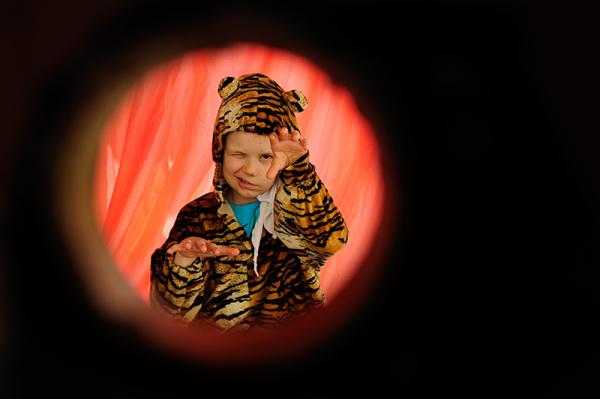
During the year, Zuzanna Szafran holds several meetings for potential volunteers at universities and in corporate environments: “Our volunteers are amazing. For the most part, these are people who do not become involved as a one-off. Not everyone is able to take part in the week-long camp, but Bátor Tábor encourages these people to join the Go Programme – to conduct monthly workshops for children who undergo oncological treatment at two hospitals in Warsaw: the Children’s Memorial Health Institute and the Institute of Mother and Child. During the 2.5-hour classes, the volunteers play games with the children, paint the children’s faces or engage in art activities and handicraft. The range of available activities is wide and adapted to the age and interests of young patients: “The idea is to give parents a break so that they can sort out their own affairs or do something for themselves, while their child is being looked after. Often, the parents choose to become involved in the activities, and this is a beautiful moment.” – Zuzanna Szafran recalls – I remember one mother who fell asleep during a workshop, leaning against her child’s bed, while the child was being taken care of by volunteers.”
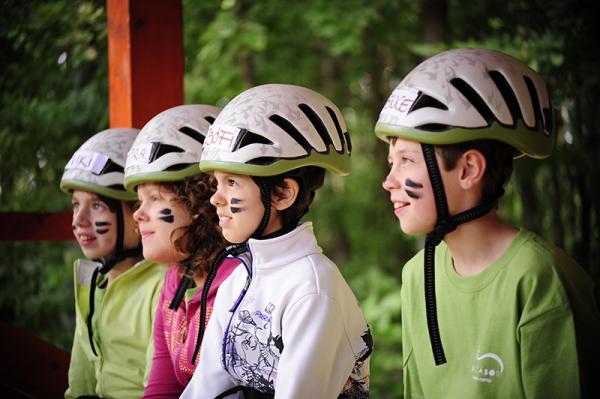
She sums up: “Sometimes, I come across the following approach: I couldn’t work with ill children, because it is so sad. But this work is not sad! My daily work resembles any other – administration, book-keeping, management. Volunteering is not obligatory for employees, it is our choice. For me, however, it is obvious that I take part in it, because it gives meaning to my work. The ability to interact with children, who often have lived through worse times than many adults, allows me to open my eyes. These children are so mature that we can learn an amazing amount from them.”
If you are interested in the operation of the Bátor Tábor Foundation and would like to volunteer, make sure to visit the organisation’s website: https://batortabor.pl
Marta Dzbeńska Karpińska
foto:
Marta Dzbeńska Karpińska
